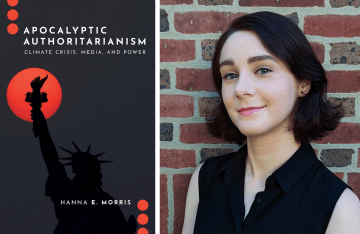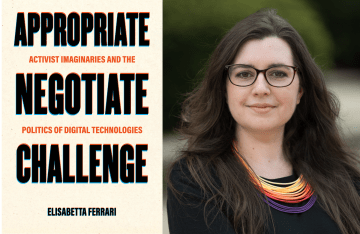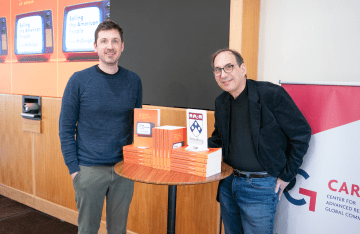Professional Development Day 2019: Annenberg Alumni Return to Share Career Advice
Presenters representing a wide range of careers returned for the annual event.
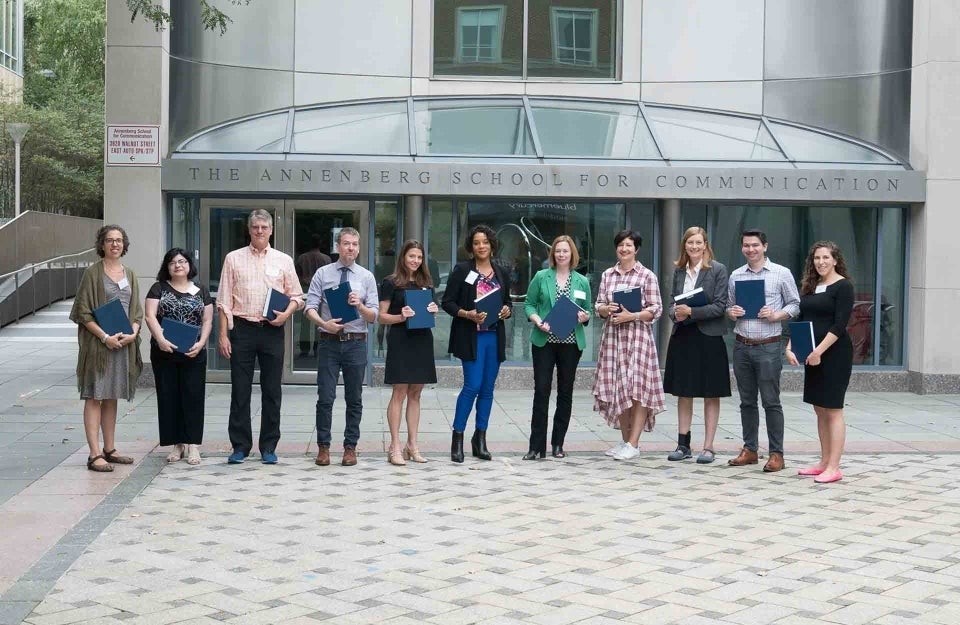
Professional Development Day, hosted annually by the Annenberg School for Communication, brings back alumni to share career advice with current graduate students and postdoctoral fellows. This year’s event, held on September 14, was organized by graduate students Yasemin Y. Celikkol, Tyler Leigh, Lizzie Martin, Prateekshit Pandey, Leeann Siegel, and Natacha Yazbeck, and Academic Advisor and Research Supervisor for Undergraduate Studies Kim Woolf (Ph.D. ’09).
The presenters have found careers within academia, in research, and in nonprofits. Below are a few of the insights they shared, organized by panel.
Panel 1 — Changing Lanes: Career Flexibility in Practice
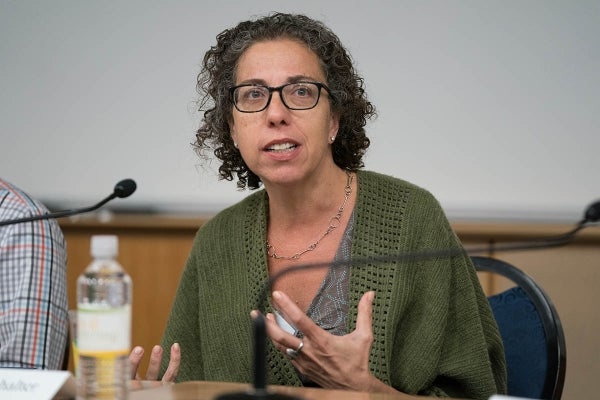
"When considering whether you want to pursue a career in academia or not, in addition to thinking about your personal life and how that fits in, think about what’s happening in the world that you want to contribute your talents to. Pursue the things that are actually interesting to you and don’t worry so much about fitting into the box of expectations." — Rona Buchalter (Ph.D. '97), Director of Refugee Programming and Planning, HIAS Pennsylvania
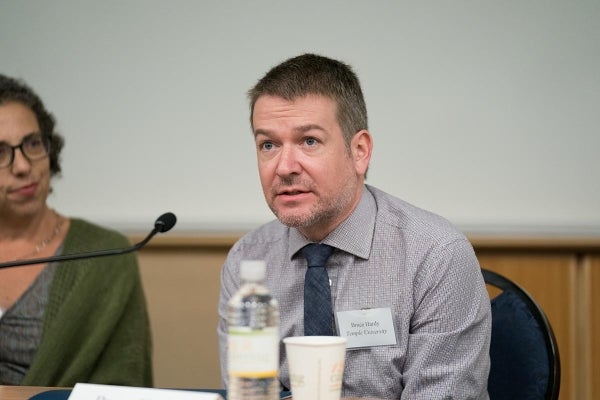
"Life is always fixable. It always works itself out. Nothing will work out the way you expect it to, but it will work out. When you have a problem, step outside yourself and think of what you would tell someone else." — Bruce Hardy (Ph.D. '10), Assistant Professor of Communication, Temple University
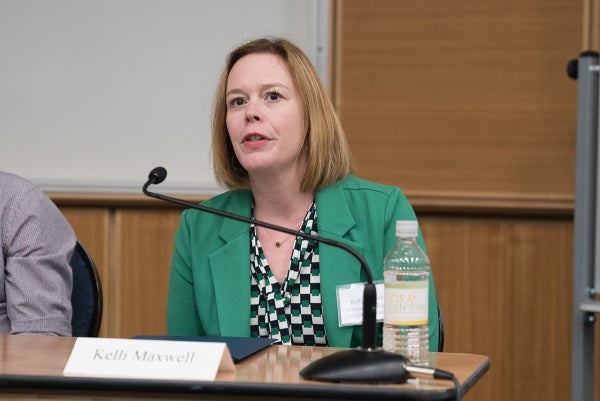
"What I learned here is how to think. The ability to make sure that I am presenting information in such a way that I will be heard and then use that argument to move forward and make necessary change is really crucial." — Kelli Maxwell (Ph.D. '07), Associate Provost, Community College of Allegheny County
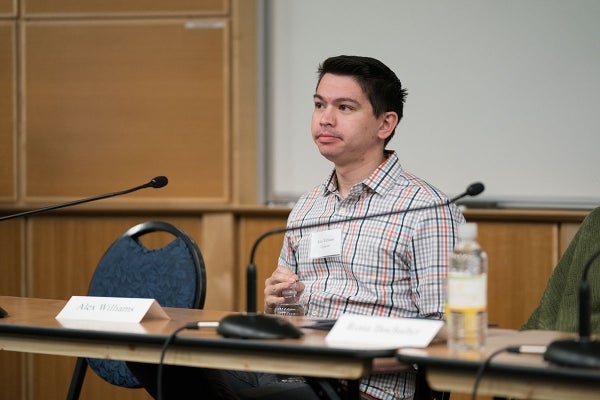
"The ability to take new information, point out the assumptions, interrogate those assumptions, and identify ways that we can use research to bolster those assumptions… Those skills are highly transferable." — Alex T. Williams (Ph.D. '18), Senior Manager, Internet Essentials at Comcast
Panel 2 — Teaching and Research in Contentious Political Times
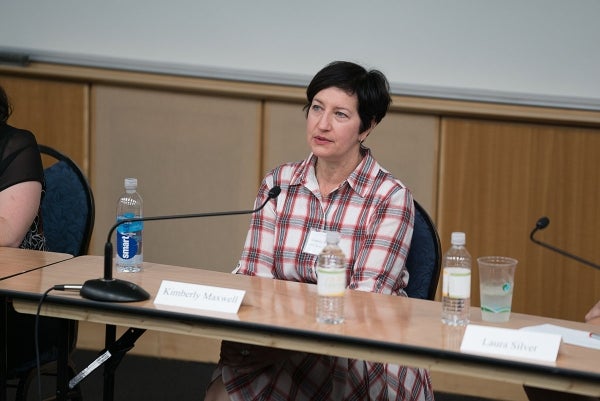
"You have to be non-political in your research, particularly in qualitative research. All opinions are out there and you have to be open to hearing them. It’s important to remain neutral when listening to consumers." — Kimberly Maxwell (Ph.D. '00), Vice President of Consumer Insights Research, NBC News/MSNBC
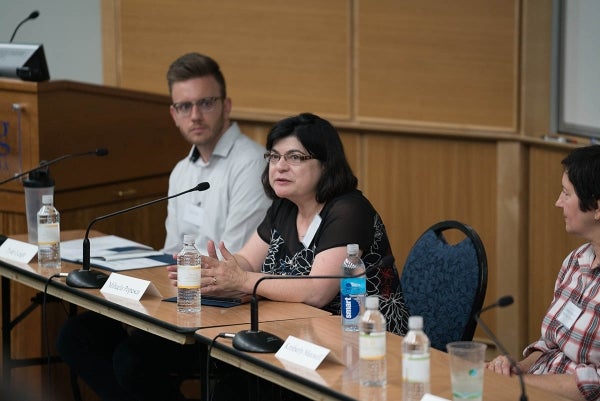
"It is vital to start from a common basis. I am a liberal but have a lot of students who are not. However, we all believe in social justice, for example. I think it’s important to be empathetic to why students have different political opinions and how their life experiences play into that." — Mihaela Popescu (Ph.D. '08), Professor, California State University, San Bernardino
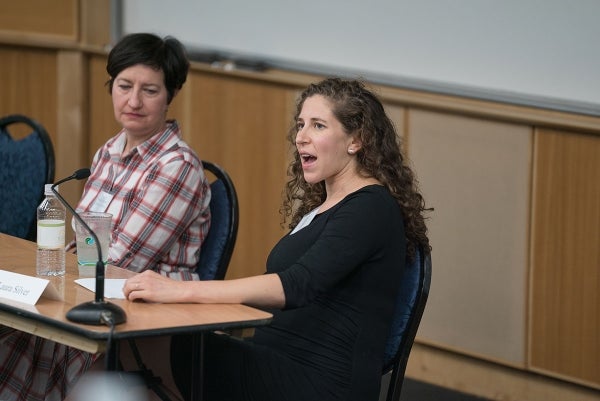
"They feel very strongly about us being neutral. That goes from social media to giving political contributions. If people google us they shouldn’t be able to tell our partisanship because it may impact the way they interpret your research … I think transparency about where you get money and who supports you is important." — Laura Silver (Ph.D. '16), Senior Researcher, Pew Research Center
Panel 3 — Public Scholarship: Writing and Promoting Your Work
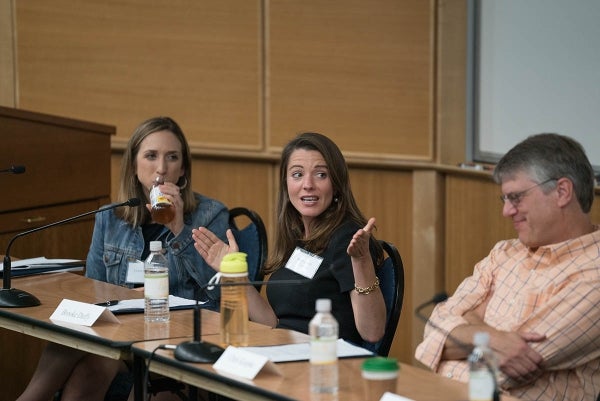
"It's striking to consider the promotional labor that academics are encouraged to do and that — much like the self-branding of journalists and other media workers — it is both compulsory and largely invisible." — Brooke Erin Duffy (Ph.D. '11), Assistant Professor of Communication, Cornell University
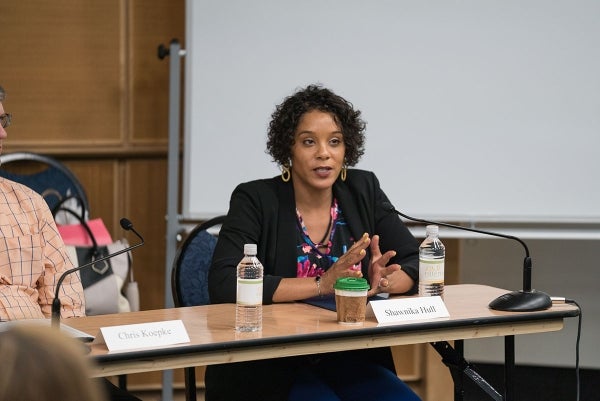
"The cornerstone of professional development is a daily writing practice, so write first. Write first. Write every single day, and make it the first thing that you do before your email swallows you up." — Shawnika Hull (Ph.D. '10), Assistant Professor of Prevention and Community Health, George Washington University
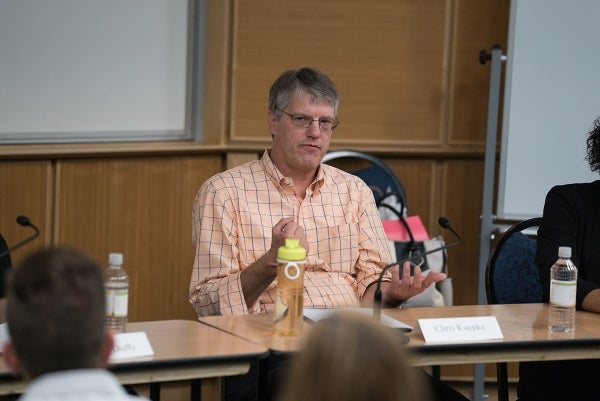
"All my goal is in life, quite honestly, is to be relevant, and the only way for me to be relevant is for the people who are driving positive change to be aware of me and trust me." — Chris Koepke (Ph.D. '95), Director of Strategic Marketing Group, Centers for Medicare and Medicaid Services

